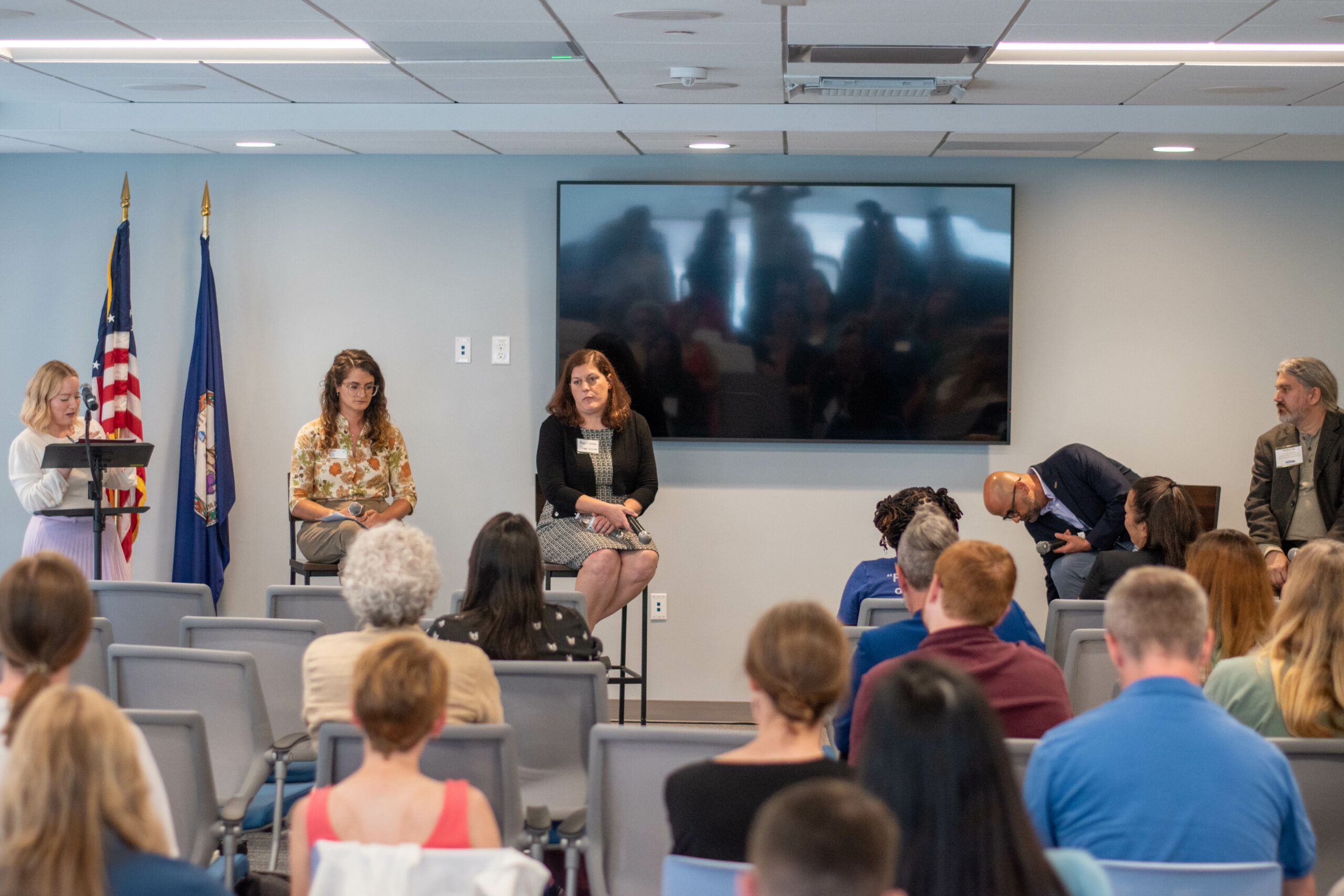PlanRVA Day: Leveraging data to disrupt poverty

PlanRVA Day: Leveraging data to disrupt poverty
Nonprofit data experts joined forces for a discussion on opportunities to support economic and social mobility during PlanRVA Day on June 13.
Earlier this year, the Richmond region was selected as one of 26 localities across the United States to join the Urban Institute’s Mobility Action Learning Network. The cohort, led by the United Way of Greater Richmond and Petersburg, receives training and technical assistance through 2024 as groups work to incorporate strategies and solutions to promote economic mobility and equity.
Strong and established partnerships between local governments and nongovernment organizations helped the region be selected for the program.
Unpacking the Upward Mobility Framework
“Communities across the country want to help residents achieve success, exit poverty, and live in a more equitable society,” said Alexis Weaver, policy program associate with the Urban Institute. “Many local leaders have committed to the hard work of dismantling barriers and building systems that support upward mobility and advance racial equity, but often lack the information they need to reach those goals.”
The Urban Institute’s Upward Mobility Framework is an important solution to provide information and context, according to Weaver.
The framework provides a foundation for understanding and organizing regional leaders and communities to support sustained upward mobility.
Economic success, power and autonomy, and dignity and belonging are key dimensions of the framework; each of which are essential to sustained system change.
For example, increased wages alone aren’t enough to support economic mobility – community members must have access to choice and power as well. People need to feel that they are valued in the community to develop a sense of belonging.
The framework is organized across five pillars – opportunity rich and inclusive neighborhoods, high-quality education, rewarding work, healthy environment and access to good health care, and responsive and just governance – that support people and families as they propel themselves out of poverty. Each pillar also includes several predictors to help track success.
A collaborative approach to data collection
In 2023, leaders with PlanRVA, the Community Foundation of Richmond, and the United Way of Greater Richmond & Petersburg noticed they were collecting some of the same data and started discussing opportunities to share information.
“It became apparent that the more that we collaborated, the more we could improve the systems and the more we could take collective action,” said Frank Cardella, director of research and evaluation at United Way of Greater Richmond & Petersburg.
The partnership led the organizations to apply for the Urban Institute’s Mobility Action Learning Network. The team then invited the Partnership for Housing Affordability and ChamberRVA to join the effort with an eye to focusing on the region’s priority issues of housing and workforce.
Today the organizations are focusing on the opportunity rich and inclusive neighborhoods pillar to develop metrics within areas of affordable housing, transportation access and economic inclusion in the region. The entities are now working on a mobility action plan to support the work happening locally.
Data drives decision-making
Outside of the Mobile Action Learning Network work group, the session’s panelists highlighted how their organizations are leveraging data to inform decisions.
“By using data throughout the grant making process, we as funders can make more informed decisions about where to allocate resources and nonprofits can demonstrate their effectiveness and iterate for enhanced service delivery,” said Isabel Eljaiek, senior officer of data and research at the Community Foundation for a greater Richmond.
Eljaiek referenced how the Community Foundation asks nonprofits to include disaggregated demographic data on who holds power within an organization, such as senior leaders and boards of directors.
It’s important data to know: Research shows that the average revenues of Black-led organizations were 24% smaller than their white-led counterparts, while the unrestricted assets of Black-led organizations were 76% smaller.
The insights help the Community Foundation identify and address disparities to strengthen the equitable allocation of resources.
United Way shares data publicly through its Steps to Success framework. The tool is helpful for people to understand community challenges and for nonprofits that may not have the resources to analyze their own data.
Cardella also mentioned the data give the organization an opportunity to make connections between nonprofits that may be serving the same individuals for potential partnerships.
Sharing data with the community
PlanRVA is working with local partners to create a tracking system to compile and share data on indicators of upward mobility.
The dashboard is currently in development and will measure the same data across localities, said PlanRVA’s principal data manager Sarin Adhikari.
The data will give leaders and community members an opportunity to identify disparities in specific pockets of the region to help create solutions.
Organizers are positioning the platform to be a centralized and comprehensive dashboard to examine trends and disparities impacting the community.

